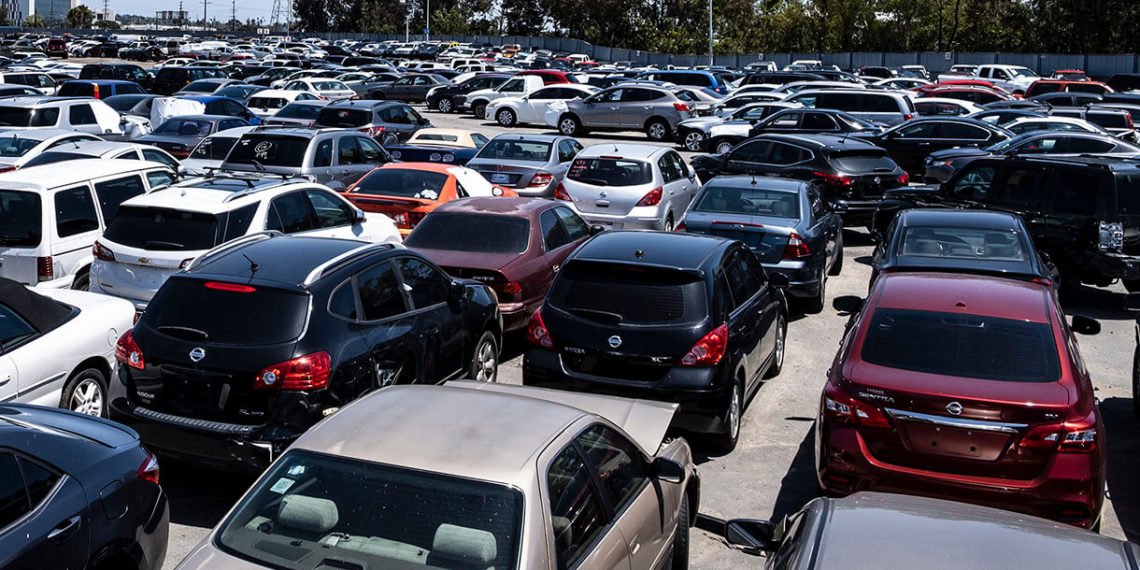The Assistant Commissioner of Customs in charge of Policy and Programmes, Customs Division, Ghana Revenue Authority (GRA), Aweya Julius Kantum, has disclosed that the law banning the importation of salvaged vehicles into Ghana will be effected on November 1, 2020.
Mr. Kantum advised agents who were the main source of information for importers that they needed to appreciate relevant laws before they brought a car or anything into Ghana.
He further revealed that as scheduled, the GRA would start enforcing the law from November 1, 2020.
“The time of importation in Customs is the time that the ship docks and reports to customs that it has docked. If the ship comes from 1st November, it means it is time bound and it means that the law will catch it”.
He encouraged agents to have a full grasp of the law and cease from importing salvaged cars and cargo into the country as one will be liable if he or she broke the law.
“Now anybody who intends to import, should be reminded that if the cargo arrives before the first of November then he or she is within time, if it’s after that, then it means they are time-bound. Now don’t assume that the law is going to change, work on the basis that the law is going to start and then you will not fall foul on the law”.
Similarly, shipping agents, Importers and freight forwarders were therefore advised to properly counsel their clients on importing such vehicles to Ghana and its consequences.
Parliament, in March, passed the Customs (Amendment) Bill, 2020 an amendment of the existing Customs Act, 2015 (Act 891).
The amendment banned the importation of accident and salvaged motor vehicles comprising of wrecked, destroyed and those physically damaged by collision, fire, water or other occurrences into the country.
Mr. Justice Njornan Magah Yadjayime, Supervisor in charge, Vehicle Valuation Unit Customs Technical Services Bureau (CTSB), on his part, explained that contrary to assertions that there was ambiguity in the definition of salvaged vehicles by the law, the Act did not leave room for human discretionary authority beyond what it stipulates.
“The law is looking at the number of ways vehicles get damaged, so you are looking at flooding, collision etc. so all have been covered so that you don’t leave it to anybody’s judgment to say that this one can go and this one will not go”.
Parliament approves Bill banning import of cars older than 10 years
Parliament passed the Customs Amendment Bill to avert the importation of used vehicles of more than 10 years and the import of salvaged or accident vehicles.
The bill was opposed by the Minority and vehicle dealers across the country but the House after scrutinizing the document has approved it.
The amendment was to provide incentives for automotive manufacturers and assemblers registered under the Ghana Manufacturing Development Programme.
A clause in the amendment empowers the Minister of Finance to specify the date on which the ban will come into place.
The MP for Tamale Central, Inusah Fuseini, had however called for the withdrawal of the Bill because of the financial implications and the potential loss of jobs associated with its implementation.
“There is a large body of Ghanaians whose business is second-hand vehicle dealing and they were represented at the joint committee meeting. They raised the point that this Bill… does not offer second-hand vehicle dealers any protection.”
He also said the second-had car dealers deserved to be allowed to “bring in their vehicles and compete with the vehicles that will be manufactured by the automobile assembly.”






















